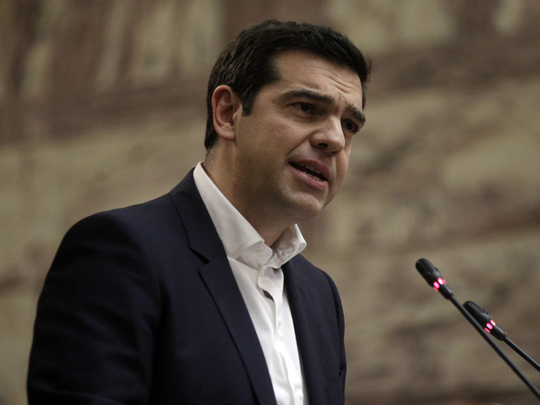
With Syriza having won Greece’s election on a platform to reject the Troika-imposed bailout, the Eurozone has reached yet another fork in the road. Let us hope it does not take the wrong turn, again.
Squeezing Syriza and humiliating Greece further, as appears to be the strategy in Germany and other powers in the EU, could be the straw that breaks the Eurozone’s back. Cutting Greece any slack is opposed by a majority of Germans, even while support for Alexis Tsipras in Greece soared after his election as he fought for concessions on debt.
Political space in the Eurozone has shrunk to a point where it may no longer be possible to implement sensible economic policy. Which wrong turns did we take? How can we choose wisely this time?
At the outbreak of the crisis, EU leaders insisted on national solutions to what was essentially a European problem: the fragility of large often pan-European banks. This increased the final bill, as countries refused to bite the bullet and delayed recognising that their banks were bust.
Even as leaders came under domestic fire for rescuing banks with taxpayer money, Greece’s fiscal problems provided a godsend distraction. Many northern Europeans promoted a narrative of “lazy Greeks” who had been “fiscally profligate”.
While the unsustainability of Greek debt was recognised by many, intensive lobbying by German and French banks which owned large amounts of Greek bonds meant that the much-needed restructuring of this debt was vetoed. An ill-designed programme was imposed as condition of financial aid to Greece. This was essentially a bailout of European banks at the expense of Greek citizens and European taxpayers.
Even worse, the narrative of “lazy southerners” and a “fiscal crisis” promoted by Germany and EU institutions crowded out the reality of an untreated banking crisis.
Ireland, having foolishly guaranteed its insolvent banks, was then forbidden from imposing losses on bank bondholders by the ECB. Private debt became public and the banking crisis became a fiscal one. Even though the failure to repair and restructure banks was the biggest problem in countries such as Spain, many were treated as though they had been fiscally irresponsible and prescribed austerity.
As bank uncertainty and fiscal cuts were biting and driving the Eurozone into a deep recession, the narrative of a “fiscal crisis” became self-fulfilling as debt-to-GDP ratios climbed because of both bank rescues and collapsing GDPs. The problem was compounded by Angela Merkel and Nicolas Sarkozy threatening to push Greece out of the Eurozone, which in turn made markets question the viability of the single currency and fuelled panic, driving Spanish and Italian spreads up to record levels.
Thus the downward spiral of a badly misdiagnosed and deliberately miscommunicated problem, and a tragically ill-conceived treatment began. Bailing out the supposedly lazy southerners has stoked anti-EU sentiment in creditor economies like Germany, who want to see more, not less austerity in debtor economies.
Suffering under Troika-imposed excessive austerity has fuelled the rise of anti-austerity parties such as Syriza and Podémos.
While Greece’s failures are widely recognised, including by Syriza itself, it is time to concede that the Eurozone has also failed Greece and its citizens. Without a mea culpa acknowledging that Greece’s rescue was actually a rescue of European banks and the programme poorly designed, German and Greek citizens would never see eye-to-eye. They deserve to be told the truth.
Syriza, more than anyone else, is being honest about what went wrong. Choking them would only catalyse anti-European sentiment and would be the last, potentially fatal, wrong turn for the Eurozone. Choosing wisely means a compromise, no matter what the short-term political cost.
— Guardian News & Media Ltd
Sony Kapoor is managing director of the thinktank Re-Define.








